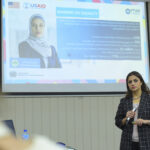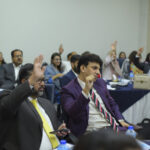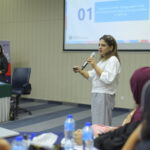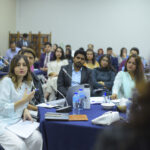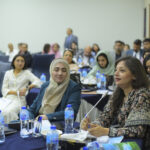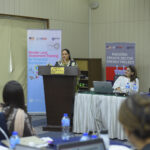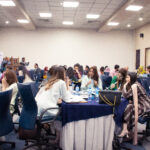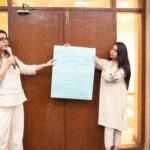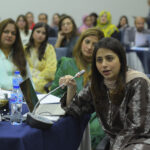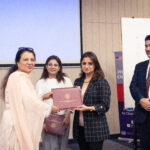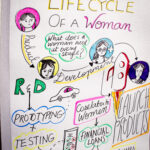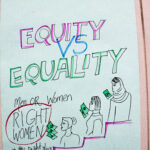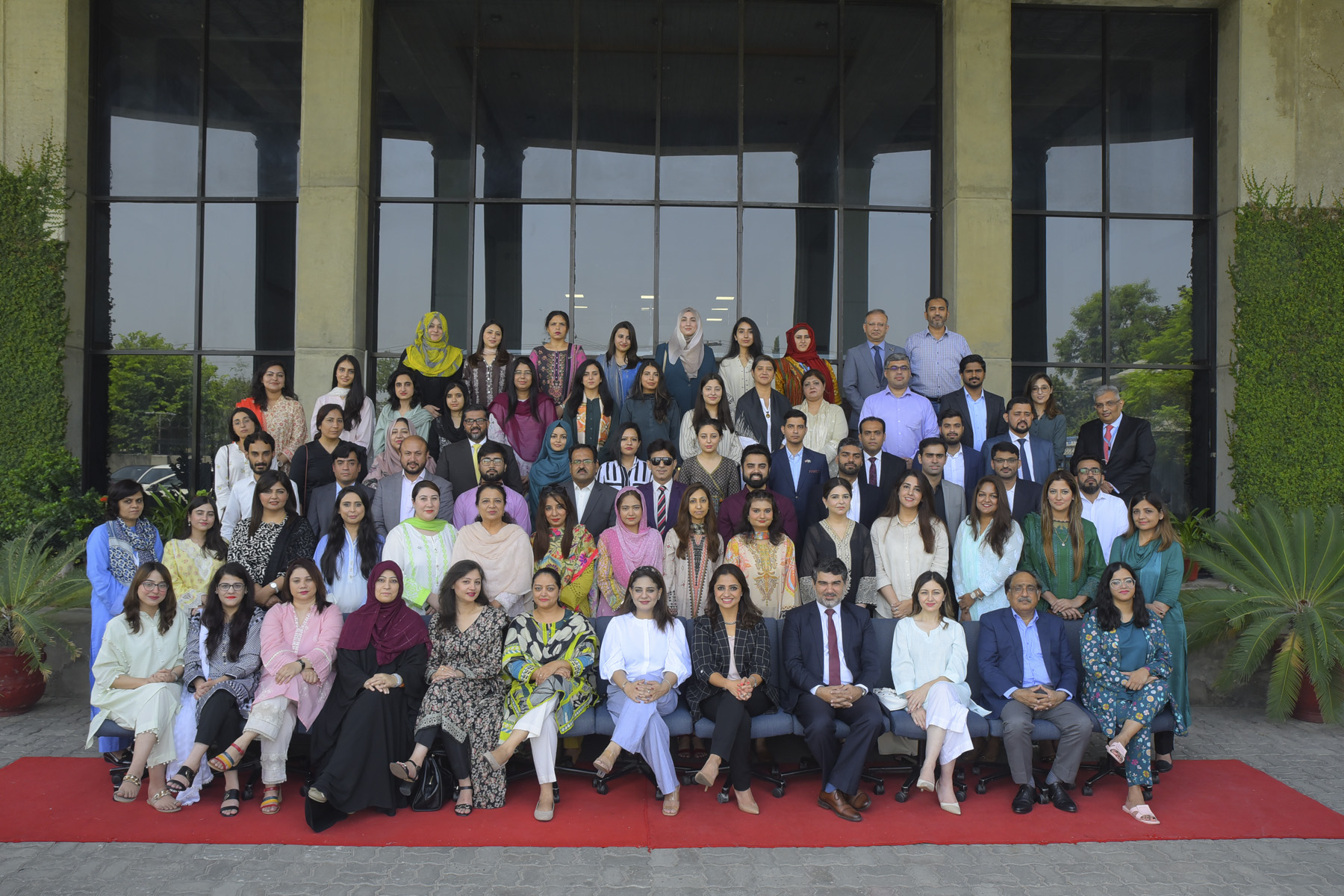
59 Finance Professionals from 44 Institutions Trained in Gender Lens Investing
Women are the world’s fastest-growing market as more women are becoming highly educated, entering the workforce, and starting businesses. While these upward trends make women a potentially lucrative target demographic for financial institutions, in countries such as Pakistan, social and gender norms that place economic and social barriers on women abound. Thus, the potential of this market remains largely untapped and women are still significantly either unserved or underserved in Pakistan.
This is why the Pakistan-dedicated PFAN project, the Pakistan Private Sector Energy (PPSE) held a 1-Day intensive training covering the gender lens within banking products that facilitate more equitable investment, particularly in clean energy. PPSE partnered with the National Institute of Banking and Finance (NIBAF) for this capacity-building initiative.
PPSE is funded by USAID Pakistan, and is implemented by the Private Financing Advisory Network (PFAN) in partnership with UNIDO and REEEP.
Since 2019, the Private Financing Advisory Network (PFAN) has been intensifying its efforts to achieve its gender objectives through various means, such as the development of a PFAN Gender Strategy and Action Plan as well as Gender Awareness Trainings and Masterclasses on Gender-Lens Investing. PFAN is dedicated to helping bridge the gender divide in financial inclusion and organized a Gender Lens Investment Training for selected Financial Institutions in the country.
The impactful training was led by Fiza Farhan, CEO, ORA Global Development Advisors and the youngest member of the UN Secretary General’s High-Level Panel on Women Economic Empowerment. Financial Product Development Specialist and Inclusivity Trainer, Fauziah Ali Banuri co-led the training with her over 14 years of experience in the banking, marketing, and advertising industry.
PPSE leadership opened the floor with a commitment to strong allyship to women social and economic empowerment especially within the clean energy transition.
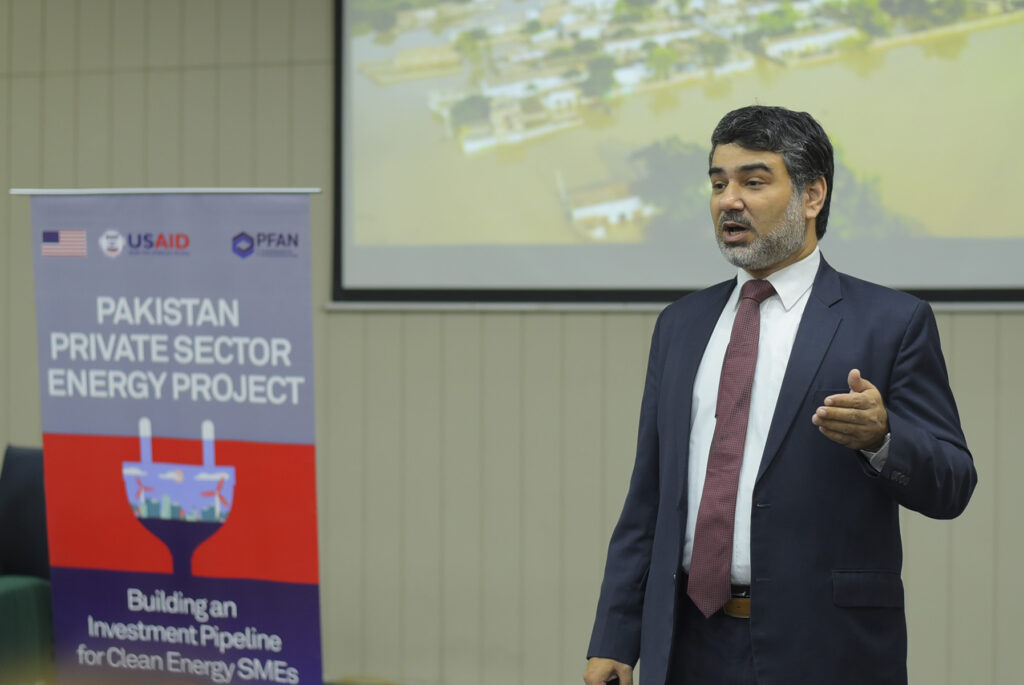
Ahmed Ammar Yasser – Chief of Party, the Pakistan Private Sector Energy Project
![]() We recognize gender parity and equity not only as a responsibility but also an opportunity to contribute towards the overarching goal of gender equality and the empowerment of women within our internal operations and market-facing activities.” – Ahmed Ammar Yasser – Chief of Party, PPSE
We recognize gender parity and equity not only as a responsibility but also an opportunity to contribute towards the overarching goal of gender equality and the empowerment of women within our internal operations and market-facing activities.” – Ahmed Ammar Yasser – Chief of Party, PPSE
To this effect, within the PPSE project:
![]()
![]()
![]()
![]()
![]()
![]()
![]()
![]()
As funding partner for the project, USAID also reinstated its commitment to gender mainstreaming as a cross-cutting theme and priority within all its activities.
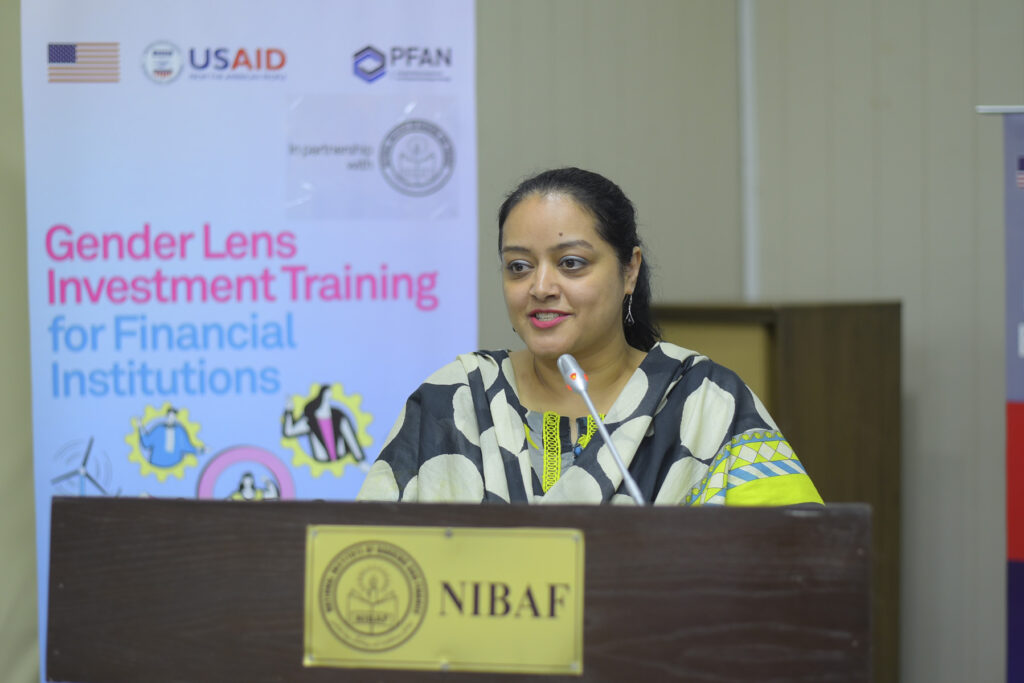

Rabia Bukhari – Programme Specialist, USAID Pakistan
![]()
![]()
![]()
The training covered aspects such as:
- Sensitization of gender norms and barriers in the finance sector
- Analyzing Gender-Disaggregated Data Identifying Unmet Needs and Opportunities in Pakistan
- State Bank of Pakistan’s Policy on Banking on Equality (BOE)
- Investing or Lending with a Gender Lens
- GLI Strategy Formulation: Investing IN, FOR, BY women. Building blocks for developing inclusive financial products
- Examples of Investments and Business Practices in the Financial Sector
- Making the Business Case for GLI
To show participants gender inclusivity and equitable practices within banks in Pakistan, a ‘Leadership Perspective Session’ was held to highlight best practices. CEO of Bank of Khyber, Ali Gulfaraz delivered a speech and presentation on success stories of women’s active inclusion within operations and service delivery. This bank is the provincial financial service provider in arguably the country’s most conservative segment, which gave participants hope that change is possible in even the most rigid environments.
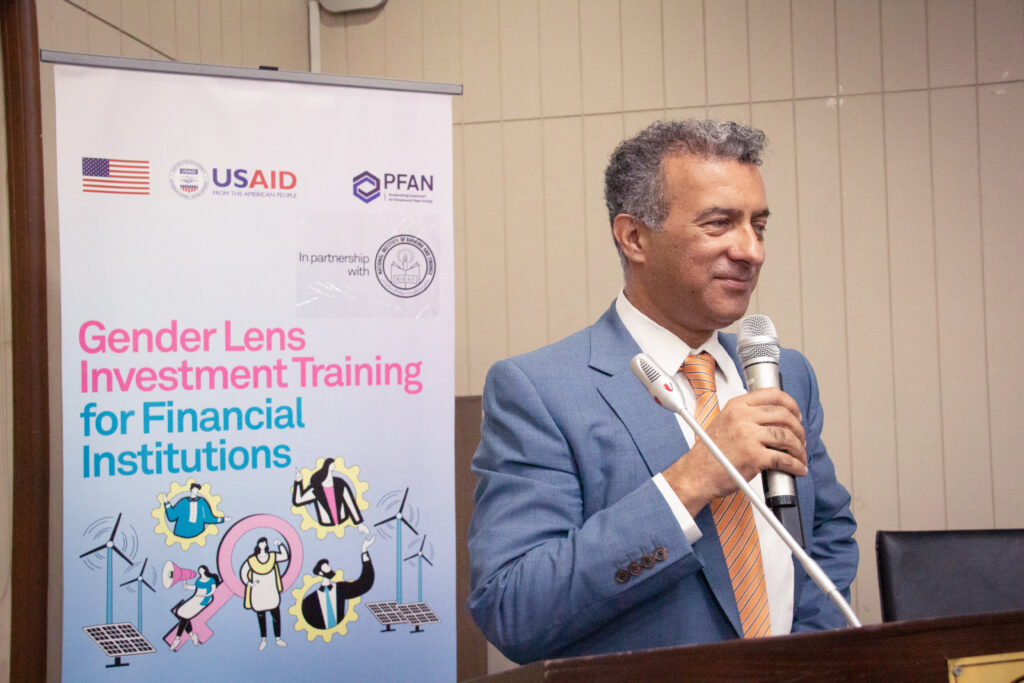

Ali Gulfaraz, CEO, Bank of Khyber


Ali Gulfaraz, CEO, BOK
To practically demonstrate that participants understood and grasped GLI as a concept and equity tool, an in-depth group activity took place on developing a financial product inculcating GLI. Select groups shared their solutions and insights.
Interested to know more about GLI and the training content?
Find valuable resources made by our team and trainers as well as a very useful manual from Financial Alliance for Women*.
PFAN PPSE GLI for Financial Institutions Presentation at NIBAF: https://pfan.net/wp-content/uploads/2023/09/Gender-Lens-Investing-for-FIs-Presentation.pdf
PFAN PPSE GLI Toolkit for FIs: https://pfan.net/wp-content/uploads/2023/09/Gender-Lens-Investing-for-FIs-Toolkit.pdf
Financial Alliance for Women Business Case Manual: https://pfan.net/wp-content/uploads/2023/09/Financial-Alliance-for-Women-Business-Case-Manual.pdf
Financial Alliance for Women Business Case Toolkit: https://pfan.net/wp-content/uploads/2023/09/Financial-Alliance-for-Women-Business-Case-Tool-V3.0.2.xlsx
Watch our training showreel to get a glimpse of the exciting and impactful work we did with participants!
